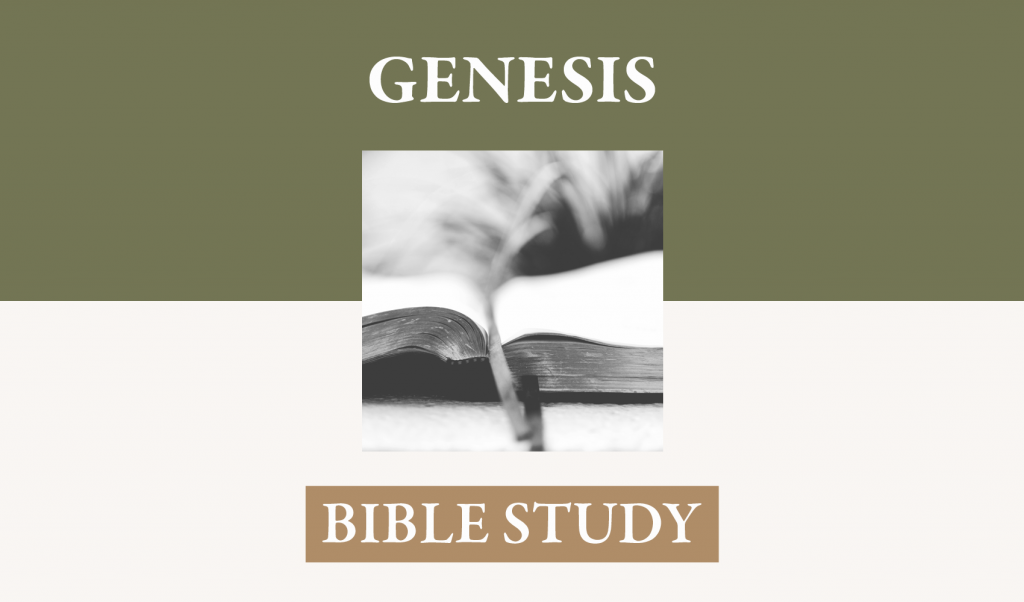I. Indicators that the time to move had come. Jacob had “large flocks and female and male servants and camels and donkeys” and, in short, was “exceedingly prosperous.” His prosperous condition was gained by hard work, fair bargains, and wise disposition of his gain, and a shrewd perception of divine providence in his favor. As is normal in a fallen and grasping world, his success provoked suspicion and envy and led to accusations.
A. Laban’s sons, first appearing in the narrative at this point, were too young to tend the sheep when Jacob first arrived and have not taken up the task for twenty years. Not only has Jacob prospered, but Laban has increased in wealth through the careful stewardship and sacrificial labor of Jacob (30:27). The sons, however, merely observing Jacob’s prosperity and not being privy to the agreement made with Laban six years ago (30:31-34; 31:41) accused him of stealing from their father’s flock.
B. Laban also was noticeably antagonized toward Jacob. Laban has proven, and will continue to prove, to be a churlish, grasping, and petty figure who speaks in grandiose terms. He presents himself as having more respectable motives than is indicated by his actions and is in a constant state of misrepresentation.
C. Giving substance to these observations, the Lord came to Jacob and, in covenantal language, told him to return to the land of his fathers. He also said, “I will be with you.” Both of these aspects of God’s command were in line with the covenant at Bethel, “Behold, I am with you and will keep you wherever you go, and will bring you back to this land; for I will not leave you until I have done what I have promised you.”
D. God’s leadership in our lives often relates to turning points in our own development, observation concerning the loss of opportunity for fruitful labor, and the confirmation of principles derived from biblical revelation. At this point in the history of redemption, there is no written revelation upon which the man of God may consistently meditate to saturate his life with divine truth, increase in sanctification by the truth, and “test and prove the will of God” (Romans 12:2). Jacob had only the witness of his father Abraham, his having been spared in his youth by God’s provision (Genesis 22), the experience at Bethel, the providential care evidenced in family and flocks, and now this reappearance of the Lord in a reminder of specific points of his covenantal grace.
II. Verse 4 – Jacob called his wives to meet with him in the place of pasture (apparently three days journey from Laban (30:36; 31:22), he could talk to them confidentially and honestly about this determination to move back to his original home.
A. He reported the increasingly negative attitude of Laban toward him, but that at the same time, the “God of my father” has been with me. Many times earthly relations will turn sour or be withering in the outlay of energy for little in return, but the Lord God of Abraham will never leave us nor forsake us and nothing can separate us from the love of God which is in Christ Jesus our Lord.
B. Jacob recounts his labors for their father (see also 31:38-41) and calls them to witness that he has been unfaltering in his labor for the benefit of Laban. This agreement was necessary in order to avoid questioning later as to the justness of Jacob’s actions. He is not leaving to avoid any reprimand or penalty due him for ill conduct on his part. Rather, he could say with confidence to Laban’s daughters, “I have served your father with all my strength” (31:6).
C. Conversely, Laban has given Jacob plenty of reason to leave. In the course of the twenty years, Laban had cheated Jacob and change his wages ten times (apparently not to Jacob’s advantage, but in order to make his life and his ability to prosper more difficult). Again however, Jacob does not take the words or the actions of men as the determining factor in his life but sees the provision and faithfulness of God behind all of this.
- The phenomenon of the sheep, goats, and livestock bearing the kind of offspring that had been granted to Jacob was the work of divine providence: “Thus God has taken away your father’s livestock and given them to me.” God had revealed this as his own work in a dream (31:10-12).
- God was bringing judgment on Laban for his hostile and unfair treatment of Jacob. James notes that the cries of the workers reach the ear of the Lord of Hosts (James 5:4). For all injustice, people will give an account, sometimes here and sometimes only hereafter but always with certainty and perfect justice.
- He reminded them of his visitation from God at Bethel the Lord had told him to “leave this land and return to the land of your birth” (31:13). This was a provision of the original covenantal promise, and now God is commanding Jacob to act on it.
III. Jacob’s wives confirm Jacob’s experience since they have also been victims of their father’s selfish, grasping spirit (14 – 16). Not only had Jacob not presented Laban with gifts for the marriage of his daughters, but they had brought no dowry into the marriage. Jacob’s labors had made Laban prosper, but what should have been inherited by Rachel and Leah had been consumed by Laban. Now they felt as if he treated them as foreigners and had laid nothing aside for them. On the testimony of Jacob that the Lord had told him that now was the time to go back, they consented, “Do whatever God has said to you.”
IV. Jacob leaves immediately.
A. He took only what was his. His wives and children were to ride on camels. Benjamin was not yet born (35:16-19). Reuben, the oldest son and first born of Leah, was close to twenty years of age and Joseph was close to six years of age. Eleven sons and one daughter, Dinah, were made ready for the trips.
B. Jacob also organized all his livestock and other possession that he had acquired in the years of labor. The text calls this “his acquired livestock,” indicating that all of it had come in accord with the agreement with Laban as to how he would be compensated for his continued service after the fourteen years had expired (30:25, 31, 32). As for Jacob, he would take nothing that was not his. He had enraged Esau by taking away both his birthright and his blessing. He did not want deceit to be the trait that permeated every relationship and to blaze a trail to be followed by outraged family members.
C. At the time Jacob was gathering his children and their belongings, Rachel made a detour to steal the household images while Laban is away shearing sheep. Perhaps she did this as an act of revenge seeking some satisfaction for Laban’s having squandered anything that would have been her inheritance. It seems that Laban had some degree of dependence on his devotion to these idols for he knew that they were missing. He would feel their loss, and Rachel wanted him to experience the same sense of perplexity in the absence of an important possession that she felt. This becomes an important justification for Laban’s pursuit of Jacob (30). He does not acknowledge his own pattern of thievery from Jacob, but only that his worthless idols have been taken.
D. Even with his perfect honesty in taking only what was demonstrably his property, Jacob could not face Laban with the news of his intentions. He knew there would be more attempts to make him stay, perhaps an insincere show of familial affection. While Laban was absent, therefore, Jacob left under some cover of deceit (20). One cannot but notice the difference in atmosphere in Jacob’s arrival in Haran (29:4, 11, 12, 13, 14) and this sadly clandestine departure.
V. When Laban learned three days later that Jacob had left, he immediately pursued him and caught up with him within a week. God appeared to Laban and warned him to do no harm to Jacob (24).
A. Laban accused Jacob of forcing his daughters to go with him, a conclusion for which he had no evidence and which clearly was wrong. This is a mere display of histrionics on Laban’s part as if he were the offended party.
B. Laban stated the truth of Jacob’s fleeing without giving notice, but that Laban was of a disposition to send him away with “joy and with songs, etc.” is not evident at all. It would have been a difficult scene. His professed affection for his sons and daughters might have been true for even in churlish men natural affection can be strong. His daughters, however, were not convinced that they were anything more than “foreigners” (15). Indeed, his loss of affection becomes evident in a veiled threat in which he told Jacob, “It is in my power to do you harm.” He refrained only because he was warned by God to speak neither good nor bad to Jacob. In search of his household gods, Laban learns that the Lord God of Jacob cannot be stolen but is the protector of his people.
C. Laban accused Jacob of stealing his gods by asking why he did it. This issue he approaches last, but it seems that it was the most bothersome part of the event How could he have known the gods were gone unless they were in a prominent placer in his home or he had sought to consult them before he went after Jacob.
D. Jacob leveled with Laban concerning the treatment he received at Laban’s hands, and Laban responds with disdain.
- Jacob believed that Laban was of such a disposition that he would actually take back his daughters by force. He had deceived and cheated him in the beginning of the relationship and had extorted from his years of labor. As for the taking of anything that belonged to Laban, Jacob, unaware of what Rachel had done swore his innocence upon the death of the guilty party and gave Laban freedom to find anything that was his. Because of a clever, but deceitful, plan by Rachel, Laban found nothing.
- Jacob gave a forceful recitation of all of Laban’s harsh treatment of him while Jacob was loyal and sacrificial in his service to Laban. Laban would have left Jacob destitute but the “God of Abraham and the fear of Isaac” intervened. Abraham was dead, but the God who unilaterally entered into covenant with him to bless all nations through him (12:3; 15:5), protected Jacob for he was in the line of that covenantal purpose. The one who was the “fear of Isaac,” that is, the one who brought Isaac to reverent worship and whose fear prompted sanctification and confidence even under false accusation (1 Peter 3:15, 16), gave Jacob strength to persevere and turned the treachery of Laban into blessing for Jacob.
- Laban, even in light of this plain and forceful testimony from Jacob still lays claim to his daughters, their children and Jacob’s possessions. He still pretends that he would be generous if Jacob had not tied his hands by leaving: “But what can I do this day to these my daughters or to their children whom they have borne.” In reality, God tied his hands but did not change his heart. The Jewish religious leaders of Jesus’ day resembled Laban in their hypocrisy much more than they resembled true descendants of Abraham (John 8:39-47).
- Pursuing God’s call is not an easy path. Not only do those of the world oppose what we should do, but our own indwelling sin often confuses us and our lack of knowledge of revealed truth makes us uncertain. Jacob faced the tension of leaving Laban and the prospect of facing a vengeful Esau. He had a clear conscience but nevertheless sought some subterfuges in order to avoid a direct confrontation. If God had allowed him to do so, he would have lingering unresolved issues with Laban. Laban’s pursuit, orchestrated by God’s faithful providence, allowed Jacob to state his case and have verified Laban’s grasping spirit and insincerity. Also, Laban suggests an action which will serve to end their dispute and avoid future conflict. He called for the making of a covenant to be a “witness between you and me” (44). Laban does all the talking; Jacob takes all the action.
VI. Jacob and Laban made a covenant. Upon the suggestion of a covenant between them, Jacob immediately began the process.
A. Jacob moved a stone to serve as a pillar of the covenant monument. He told the servants with him who had responsibility for the flock to gather stones and make a heap. Earlier he had used this word “brothers” in addressing the shepherd of Haran (29:4). Laban represented the work as his: “Behold this heap and behold the pillar which I have set up between you and me” (51).
B. Immediately they ate together at the place where they had erected the monument, perhaps using it as their table. Eating as a seal of a covenantal relationship symbolizes that the parties share a common trust as they now share in the common need to sustain life. The memory of Christ’s covenantal death for his people is celebrated through the partaking of bread and wine.
C. Laban makes a speech about the meaning of the pillar and monument.
- Jacob would not harm his daughters or take other wives. God would stand as witness should he do so. Laban’s treatment of them as foreigners or his manipulation of their marriages through deceit seems not to factor into Laban’s perceptions about this ironic pontification.
- Situated between the places where each would live, Laban pointed to it as a deterrent, under the witness of God, that they would not pass by it to do harm to each other. This was well and good and probably nothing would afford the occasion for such a thing. Again, the irony is that they were there because Laban had set out with the intent of inflicting harm on Jacob (31:22-24, 29). Laban was the man of retaliation, not Jacob.
- Laban, the idolater, calls upon the god of Terah, Nahor, and (formerly) Abraham, the god still worshipped by Laban through idols.
- Abraham, by an act of sovereign grace was separated from that worship (Genesis 12:1-3). Isaac had learned the fear of the Lord from his birth, had been deeply impressed with his covenantal faithfulness in his youth (22:7-13), and now worshiped the Lord in reverent fear. Jacob, therefore, also swore, but “by the fear of his father Isaac.” True fear of God is reverent, loving, and deeply joyful. This God who could condemn us has redeemed his people by his great wisdom, in accord with his justice, and on the foundation of eternal love. “If you, O Lord sho9uld mark iniquities, O Lord who could stand? But with you there is forgiveness, that you may be feared” (Psalm 130:3, 4; ).
- Even if others have no truthful foundation to their pledges and vows, Christians must realize that the relativism of others does not justify any kind of duplicity on our part. Though their gods are false, we live before the living and true God before whom the entire world will stand and give account.
- After all of this, Isaac made a sacrifice and called upon all those who were there to partake of it in a time of feasting. This is a shadow of the reconciliation made by Christ: “But now in Christ Jesus you who were once far off have been brought near by the blood of Christ. For he himself is our peace, who has made us both one and has broken down in his flesh the dividing wall of hostility” (Ephesians 2:13, 14).
















